Related Research Articles
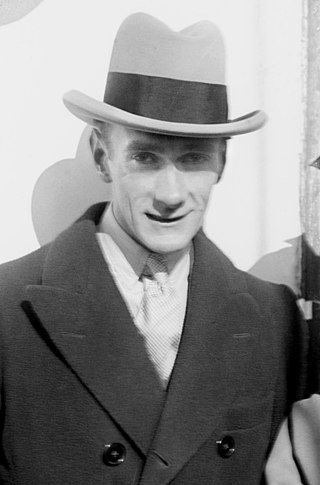
Webb Parmelee Hollenbeck, known professionally as Clifton Webb, was an American actor, singer, and dancer. He worked extensively and was known for his stage appearances in the plays of Noël Coward, including Blithe Spirit, as well as appearances on Broadway in a number of successful musical revues. As a film actor, he was nominated for three Academy Awards - Best Supporting Actor for Laura (1944) and The Razor's Edge (1946), and Best Actor in a Leading Role for Sitting Pretty (1948).

This is a list of notable events in music that took place in the year 1928.
This is a list of notable events in music that took place in the year 1924.
This is a list of notable events in music that took place in the year 1918.

Jean Schwartz was a Hungarian-born Jewish American composer and pianist. He is best known for his work writing the scores for more than 30 Broadway musicals, and for his creation of more than 1,000 popular songs with the lyricist William Jerome. Schwartz and Jerome also performed together on the vaudeville stage in the United States; sometimes in collaboration with Maude Nugent, Jerome's wife, and the Dolly Sisters. Schwartz was married to Jenny Dolly from 1913 to 1921.
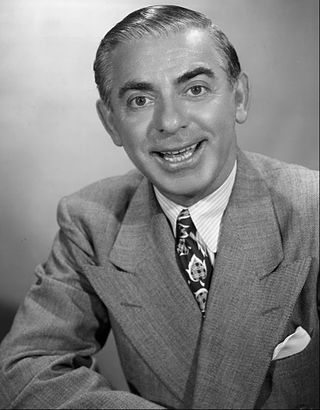
Eddie Cantor was an American comedian, actor, dancer, singer, songwriter, film producer, screenwriter and author. Cantor was one of the prominent entertainers of his era.

Gustav Gerson Kahn was an American lyricist who contributed a number of songs to the Great American Songbook, including "Pretty Baby", "Ain't We Got Fun?", "Carolina in the Morning", "Toot, Toot, Tootsie ", "My Buddy" "I'll See You in My Dreams", "It Had to Be You", "Yes Sir, That's My Baby", "Love Me or Leave Me", "Makin' Whoopee", "My Baby Just Cares for Me", "I'm Through with Love", "Dream a Little Dream of Me" and "You Stepped Out of a Dream".

Sigmund Romberg was a Hungarian-born American composer. He is best known for his musicals and operettas, particularly The Student Prince (1924), The Desert Song (1926) and The New Moon (1928).
Harry Akst was an American songwriter, who started out his career as a pianist in vaudeville accompanying singers such as Nora Bayes, Frank Fay and Al Jolson.
Ballard MacDonald was an American lyricist, who was one of the writers of Tin Pan Alley.
Louis Achille Hirsch, also known as Louis A. Hirsch and Lou Hirsch, was an American composer of songs and musicals in the early 20th century.
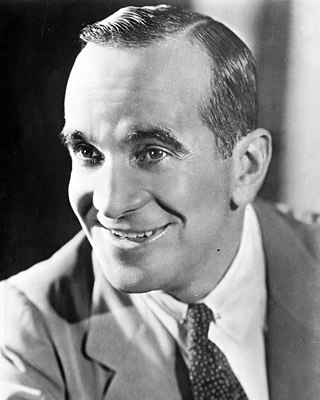
Al Jolson was a Lithuanian-born American singer, actor, and vaudevillian.
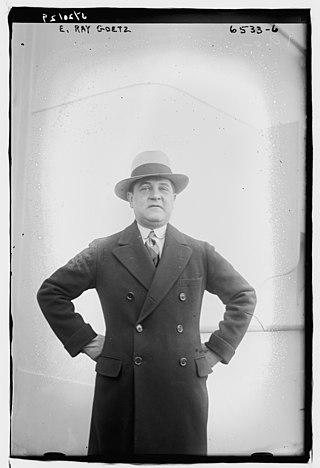
Edward Ray Goetz was an American composer, lyricist, playwright, theatre director, and theatrical producer. A Tin Pan Alley songwriter, he published more than 500 songs during his career, many of them originally written for the New York stage. His songs were recorded by several artists, including Judy Garland, Al Jolson, and Blossom Seeley. He was active as both a lyricist and composer for Broadway musicals from 1906 through to 1930, collaborating with artists like George Gershwin, Cole Porter, Sigmund Romberg, and A. Baldwin Sloane to create material for the theatre.

Grace La Rue was an American actress, singer, and vaudeville headliner.
Harold Richard Atteridge was an American composer, librettist and lyricist primarily for musicals and revues. He wrote the book and lyrics for over 20 musicals and revues for the Shubert family, including several iterations of The Passing Show.
Jesse C. Huffman (1869–1935) was an American theatrical director. Between 1906 and 1932 he directed or staged over 200 shows, mostly for the Shubert Brothers. Many of them were musical revues, musicals or operettas. He is known for The Passing Show series of revues that he staged from 1914 to 1924 at the Winter Garden Theatre on Broadway, daring alternatives to the Ziegfeld Follies.

Harland Dixon was a Canadian-American dancer and choreographer, whose career encompassed vaudeville, musical theatre, and films. For much of his career he partnered Jimmy Doyle, as Doyle and Dixon.

"Sister Susie's Sewing Shirts for Soldiers" is a World War I era song that tells about a young girl sewing shirts for soldiers fighting abroad. Her efforts are in vain however, as "Some soldiers send epistles, say they'd sooner sleep in thistles, than the saucy soft short shirts for soldiers sister Susie sews."
Grace Leboy Kahn was an American composer.
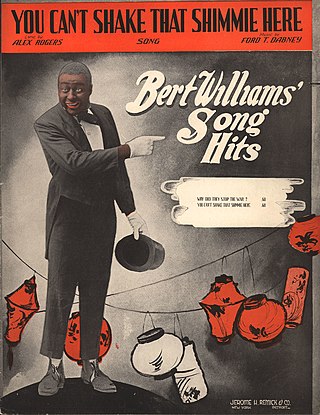
Ford Thompson Dabney was an American ragtime pianist, composer, songwriter, and acclaimed director of bands and orchestras for Broadway musical theater, revues, vaudeville, and early recordings. Additionally, for two years in Washington, from 1910 to 1912, he was proprietor of a theater that featured vaudeville, musical revues, and silent film. Dabney is best known as composer and lyricist of the 1910 song "That's Why They Call Me Shine," which for eleven point four decades, through 2023, has endured as a jazz standard. As of 2020, in the jazz genre, "Shine" has been recorded 646 times Dabney and one of his chief collaborators, James Reese Europe (1880–1919), were transitional figures in the prehistory of jazz that evolved from ragtime and blues — and grew into stride, boogie-woogie, and other next levels in jazz. Their 1914 composition, "Castle Walk" – recorded February 10, 1914, by Europe's Society Orchestra with Dabney at the piano – is one of the earliest recordings of jazz.
References
- ↑ The Broadway League. "Dancing Around – Broadway Musical – Original". IBDB. Retrieved 2023-11-15.
- ↑ "Ajolson/Onstage".
- ↑ "New York Public Library / All Locations". legacycatalog.nypl.org. Retrieved 2023-11-15.
- ↑ "Dancing Around (Romberg/Carroll, 1914)". ovrtur.com. Retrieved 2023-11-15.
- ↑ LeBoy, Grace; Starmer. Illustrator. (1914). Everybody rag with me : one step / by Grace LeBoy. Washington University in St Louis Gaylord Music Library. New York : Jerome H. Remick & Co.
- ↑ "Everybody rag with me". York University Digital Library. Retrieved 15 March 2024.
- ↑ West, Ben (18 October 2019). "Songwriters, Suffragettes, and the Musical Stage". Library of Congress Blogs. Retrieved 15 March 2024.
- 1 2 "Jim Kershner's this day in history | The Spokesman-Review". www.spokesman.com. Retrieved 2024-03-16.
- ↑ "Al Jolson: Ultimate Vaudeville Superstar by David Soren | The American Vaudeville Museum" . Retrieved 2024-03-16.